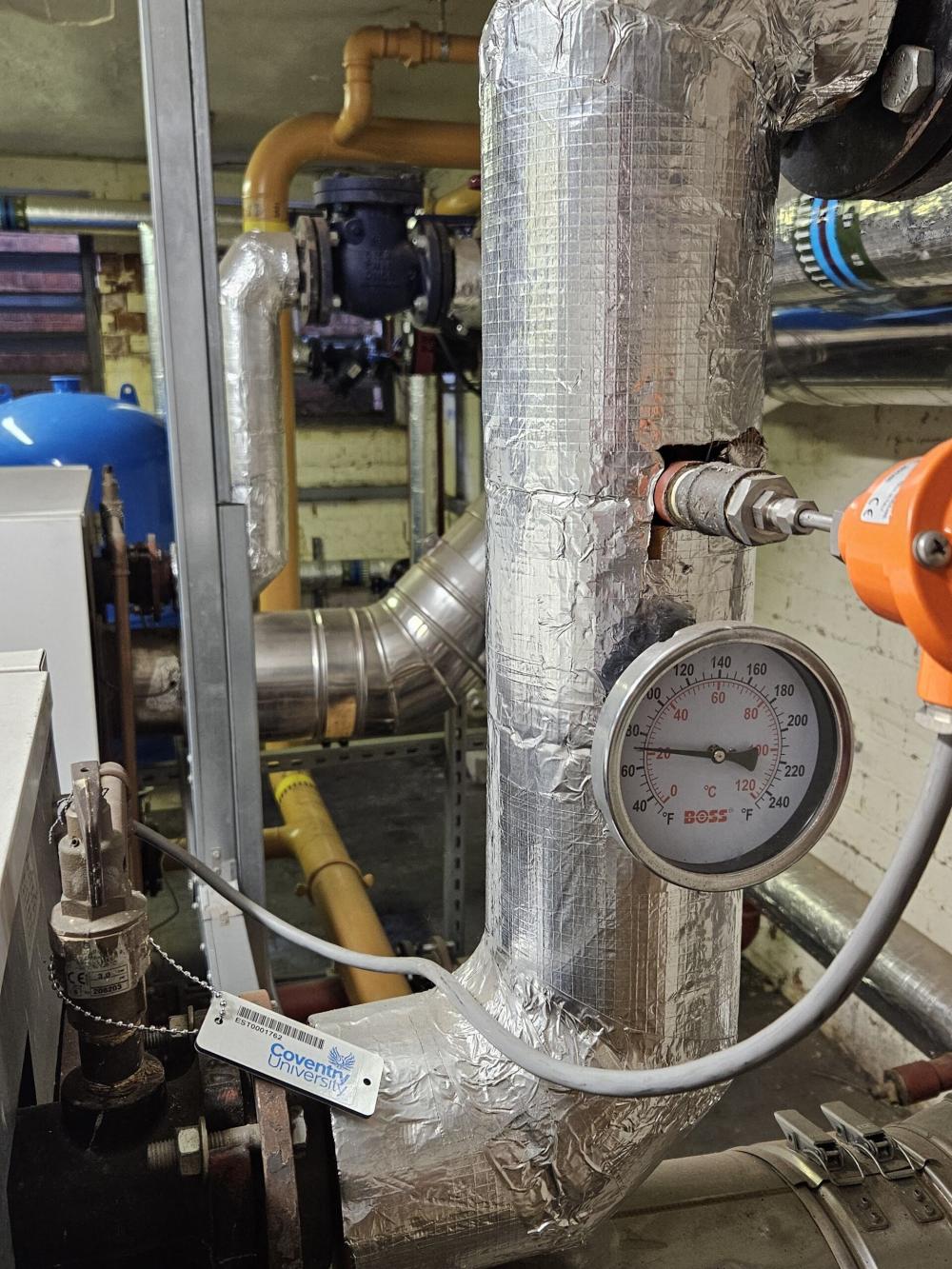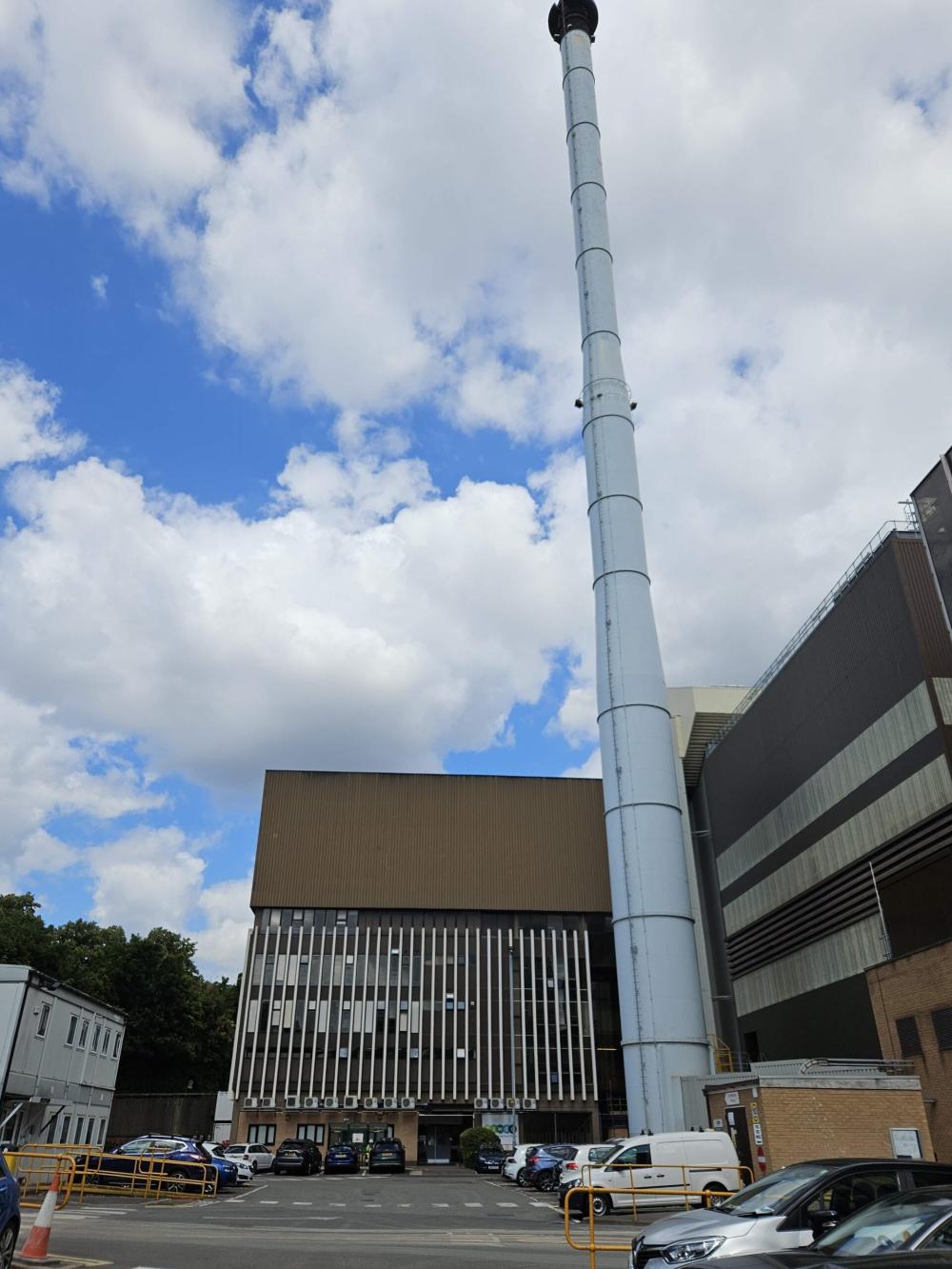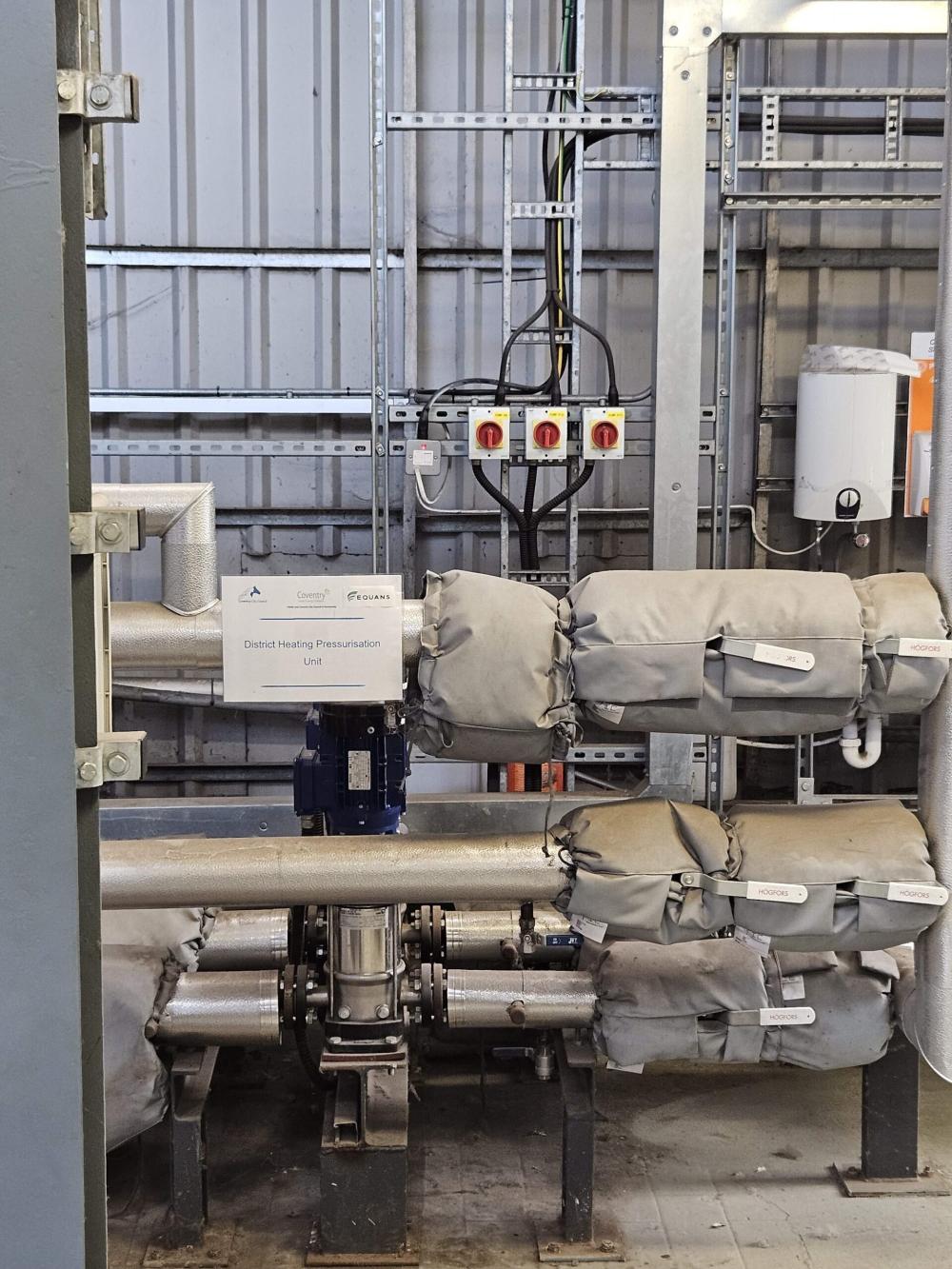Small businesses are benefiting from university’s vision for a green future

We visit Coventry University to discover how their net zero ambition is changing the world
A city centre university committed to helping society shift to net zero is on track to slash its carbon emissions and reach its 2030 net zero ambition.
Coventry University received nearly £13m in funding from the Public Sector Decarbonisation Scheme earlier this year to help reduce its impact on climate change.
Overall, the works are expected to help the university avoid grid electricity costs of more than £100,000 per year and generate zero-carbon electricity for internal consumption.
Our Salix delivery team were on site to see how the works are progressing and talk more about their completion date set for March 2026.
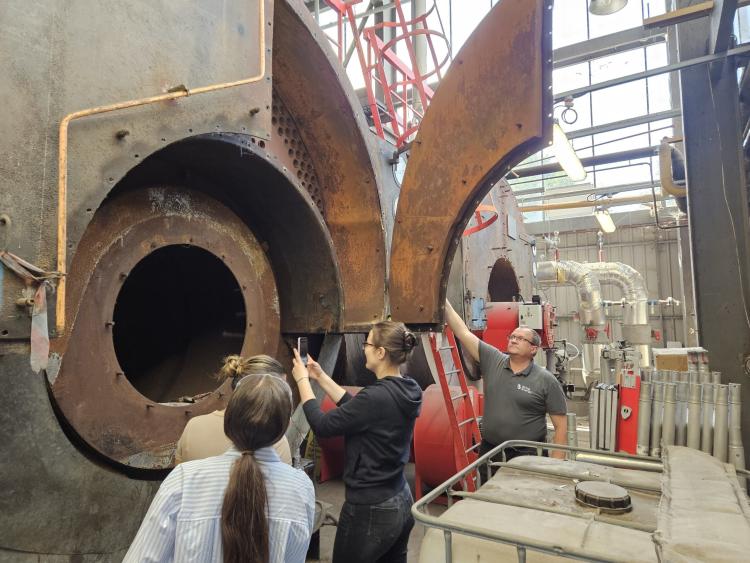
District heating engineer at Bring Energy Ian Weeks shows the Salix team one of the back-up boilers which connects the district heating network
Credit: Salix Finance
During our visit we also learned how university research is helping small businesses develop new greener technologies
Salix client support officer Anna Kuratnikova is working closely with the university to ensure deadlines are met and its vision becomes reality.
She said: “It’s always helpful to be on site and look at the area but mainly to see the passion of the people involved in the projects.
“The funding may enable the works, but the vision behind these projects is much wider than that.
“For example, they are doing incredible research here into green battery technology and hydrogen, and it’s important to hear about that too.
“During our visit to Coventry we were able to see Elm Bank which is one of the oldest buildings on campus and very impressive. The university is installing solar PVs and double-glazed windows in that building and connecting it to the low-carbon district heat network together with 10 other buildings in the campus.
“It’s a huge project and when we talked about their plan to connect these buildings on the Coventry campus to the heat network, we fully realise the ambition of the scheme.”
The government grant will also help towards the cost of installing around 1,300 new solar panels as well as connecting eleven Coventry University buildings to the city's district energy network.
It is hoped the proposals could reduce carbon emissions by more than 1,300 tonnes per year – more than a fifth of its annual carbon emissions arising from the use of fossil fuels.
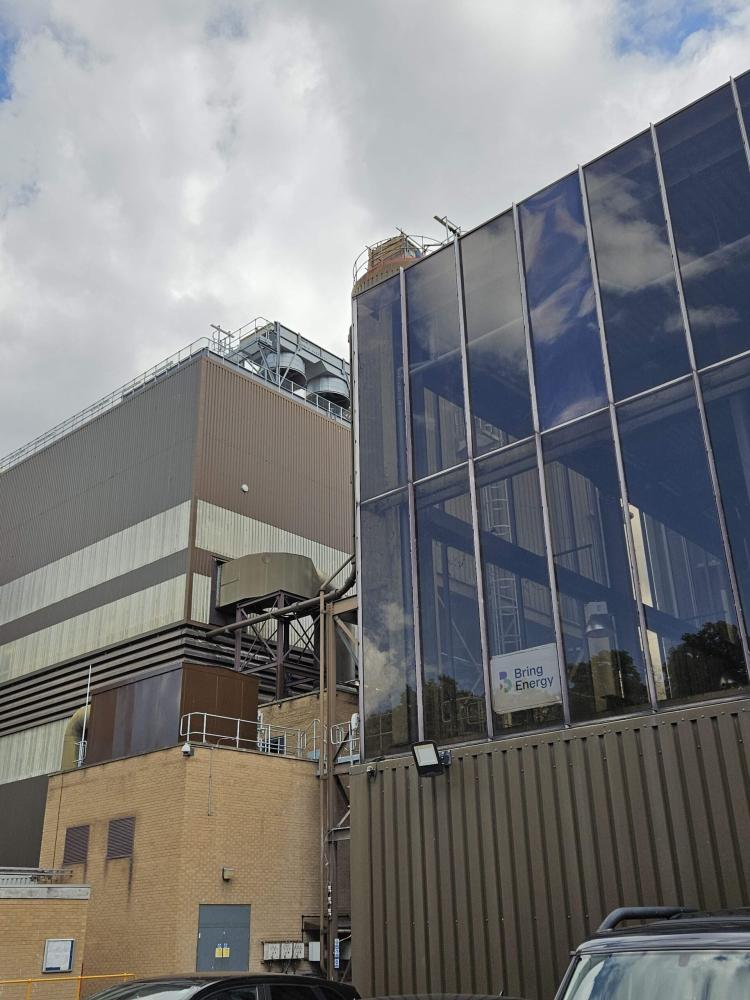
The Salix team toured the energy centre of the district heating network used to distribute the energy from the waste energy plant
Credit: Salix Finance
What is the district energy network?
The district energy network is a 6.6km underground heat system that transports waste heat from the city’s municipal incinerator to supply energy to major public buildings and in doing so has only one sixth of the carbon emissions of natural gas.
At the Coventry campus, the buildings that will connect to the network include the Alma building, Elm Bank, Sir Frank Whittle and the Student Centre.
Around 1,300 new solar panels will be installed at the Alma building, Cycle Works, The Hub, Sir Frank Whittle building and Elm Bank.
Coventry University Group prides itself on its work around sustainable development and social responsibility.
CEO Coventry University Enterprises Ltd and CEO FutureLets Mark Cammies, said: “Sustainability is central to what we stand for and we are working to speed up society’s journey to net zero and clean growth through our excellent research and education.
“The Public Sector Decarbonisation Scheme works are a part of our overall ambition.
“We are proud of the work we are doing here and also of the research we do to help tackle those issues around social responsibility and sustainability nationally and internationally. Being able to make a difference on our own campus is just as important.
“The world faces many challenges, and this is one of the most important missions we face today. Climate change is not sitting still.
“The Public Sector Decarbonisation Scheme funding has been so important to advance our journey, so we can move forward and decarbonise our estate.”
As well as its net zero work, the Coventry University Group is also conducting research into green battery technology, hydrogen fuel and future transport. Its commitment to tackling climate change is highlighted through a number of projects, including the Clean Futures programme, which is supporting small to medium-sized enterprises (SMEs) to develop new technology for green transportation in the UK.
Salix Senior Energy and Carbon Analyst Nikki Gresty said: “It is fascinating to see how all the technologies will come together and pull in the energy required for this huge set of buildings at Coventry University.
“For us at Salix, it’s not just about what organisations do with the funding, but it’s about the whole picture, seeing how they support research and how the funding can be used to trigger other work within the overall net zero picture.”
Coventry University is clearly committed to reducing greenhouse gas emissions through its work with the Public Sector Decarbonisation Scheme and beyond that with all its intense on-site research.
Mark added: “We have a huge part to play in equipping students with the knowledge and skills for a sustainable future.
“This work will go some way towards that. There is certainly no time to stand still.”

The Coventry Energy from Waste Facility converts Coventry's municipal waste into energy which will be used to heat some of Coventry University's buildings
Credit: Salix Finance
